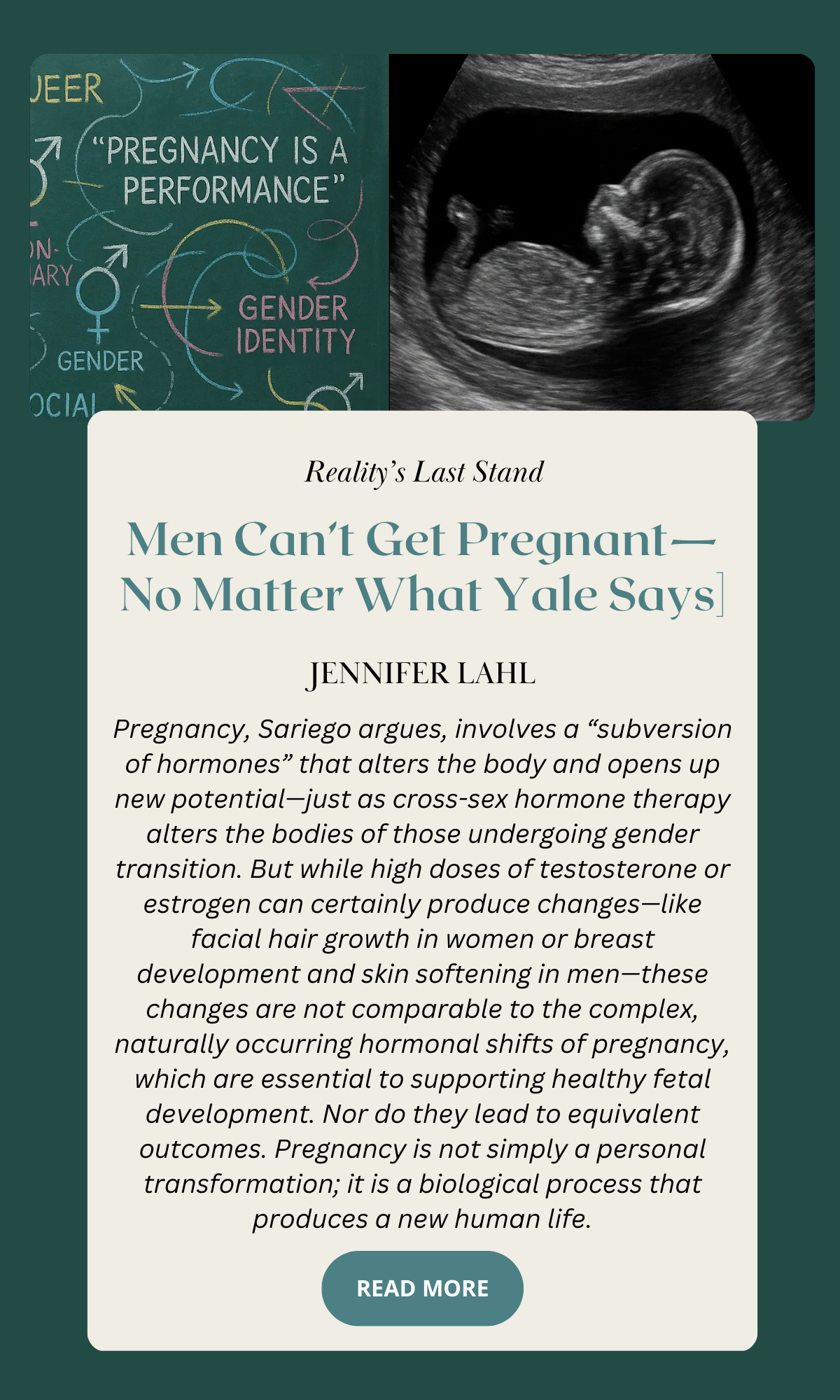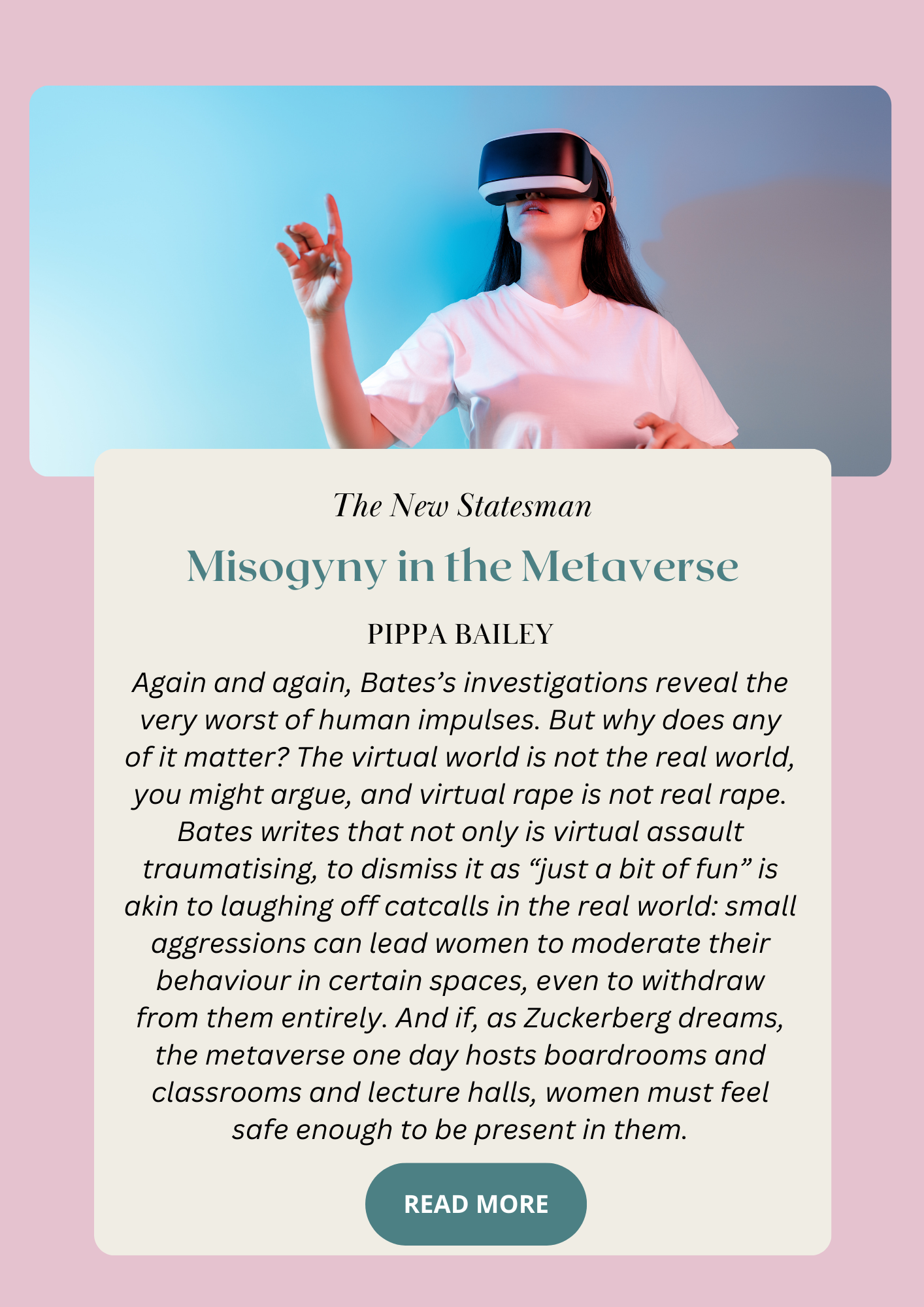Welcome to the weekly Fairer Disputations round-up: your one-stop shop for the best in sex-realist feminism. This week: Nicholas Kristof on why we shouldn’t trust porn companies, Jennifer Lahl on how men can’t get pregnant (no matter what Yale scholars say), and Pippa Bailey on misogyny in the metaverse. Plus: paying “unpaid labor”, the creative destruction of motherhood, motherless day, maternal feminism, Feminism, Defeated—and more!
First, Nicholas Kristof argues that porn companies’ own internal documents prove they care more about maximizing profit than protecting children from rape.

Next, Featured Author Jennifer Lahl shows that fringe ideological positions that ignore biology are making headway in academia.

Finally, Pippa Bailey makes the case that if the virtual world is a new frontier, it must curb the worst human impulses—misogyny, sexual assault, and rape—currently given free rein.

More Great Reads:
- The Real Case for Paying for “Unpaid Labor”, Stephanie Murray, Family Stuff
- The Creative Destruction of Motherhood, Ivana Greco, The Dispatch
- Pronatalism’s Brave New World, Rachel Lu, Law & Liberty
- Motherless Day?, Helen Roy, Helen Roy
- The Future of Feminism is Maternal — and it Always Has Been, Carolina Allen, Deseret News
Fairer Disputations Recommends:
Featured Author Kate Phelan has a new book out soon, published by Polity and available for pre-order now: Feminism, Defeated.
Feminism has been defeated.
Once a politics, feminism is now a philosophy, an epistemology, a method. Once for women, it is now for everyone. Once in pursuit of liberation, it now seeks only inclusion.
In Feminism, Defeated, Kate Phelan traces the depoliticization and ultimately, the defeat of feminism. She recovers the second-wave view of men and women as sex-classes, enemies, political kinds, a view more radical than the contemporary view of men and women as social constructs. She also describes how poststructuralism displaced this view and replaced it with another. In this view, the sex/gender binary constructs men and women, and excludes the gender nonconforming.
As this view replaced the second-wave one, the injustice of men’s oppression of women was replaced by that of exclusion, and the goal of women’s liberation was replaced by that of inclusion. Thus did feminism become the trans-inclusionary movement as which we now know it, and Phelan shows that this shift was not the progression of feminism; it was the betrayal of it. In this highly original and persuasive study, she argues that the recent emergence of a new gender-critical feminism presents a moment of opportunity to reclaim feminism’s political project.




